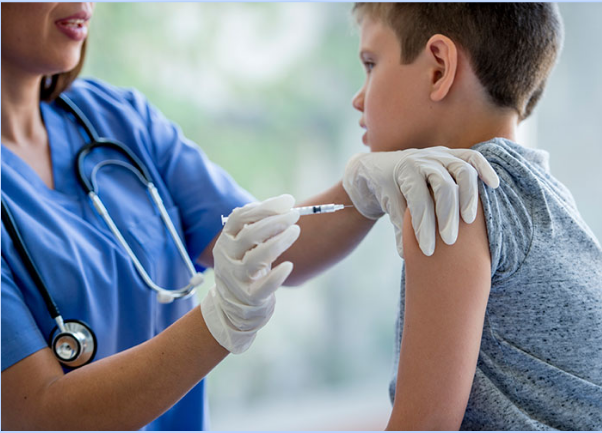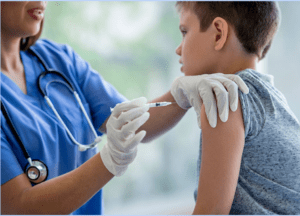Immunisation is a simple and effective way to protect people from illness caused due to infections. It is a process of administering vaccines to stimulate the immune system that creates a resistance against diseases. In other words, it strengthens your body’s defence against deadly diseases. According to the WHO, immunization prevents 2-3 million deaths from infectious diseases, like measles, tetanus, pertussis, etc. every year.
In this blog, we’ll put light on why immunization is so important. First let’s have a look at the infectious diseases outbreak happening across the globe.
Infectious Diseases Outbreak Around The World
COVID 19
This deadly infection took the world on a roller-coaster ride over the past couple of years. While COVID19 vaccines are available to everyone today, people are still learning to cope up with its health effects.
Ebola
The latest outbreak of Ebola was seen in the Democratic Republic of Congo in August, 2018. People with Ebola virus are mostly Africans.
Zika
The WHO has declared Zika virus an international health emergency. More than 80 countries have reported people infected with this mosquito-transmitted infection.
Measles, Chicken Pox, Flu
These are vaccine-preventable diseases. Intense vaccination campaigns for measles, flu, and chickenpox are conducted worldwide. However, they can outbreak if people stop vaccinating.
AIDS
According to the WHO report, around 38 million people had HIV/AIDS in 2020. There is no cure to this infection; however, medical treatments allow a person to live long and healthy.
Who Needs Immunisation?
Almost everyone needs immunisation, except those who have a weak immune system, or a medical condition. Based on your age, lifestyle, or health condition, doctors will advise which vaccinations you need. Also, if you plan to travel overseas, a travel pharmacy can help you collect the most updated information on vaccine requirements in different countries.
Vaccination is recommended for –
- A newborn or young child
- Pregnant or lactating mothers
- People who are caring for young babies
- Those who are planning to travel overseas.
- Those who are at risk of certain health conditions.
How Immunisation Can Help?
Though there are no vaccines for Ebola, Zika, and AIDS, current treatments can help patients live a healthy life. Immunisation is like a tool that boosts the body’s immune system and helps fight against infections. Thanks to extensive vaccination drives, the cases of many fatal diseases have decreased!
- Measles mortality rate has decreased by 74% globally.
- Polio cases have decreased by over 99%.
- Diseases like diarrhea can be prevented in infants or young children via vaccination.
- Flu vaccination has resulted in a tremendous decline in hospitalization.
- Hepatitis B vaccination led to a decline in the cases of liver complications.
This is just a glimpse of how immunization has helped in saving lives over the years. Let’s discuss why it is so important for children and adults.
Travel Immunisation
Overseas travellers have higher chances of suffering from travel-related infections. Also, people who travel abroad without vaccinations tend to contract the disease and spread the infection as they return to their native place. Thus, it is crucial to prioritize travel health and take vaccines as precautions while traveling to other countries.
For example, if you are traveling to the US or European countries, you require vaccinations against typhoid, tuberculosis, or meningococcal meningitis. You can look for a travel clinic for the most updated information and personal travel health advice.
Adult Immunisation
Immunisation is the best way to ensure that you and your loved ones are protected against infectious diseases. By vaccinating, you contribute to wiping out diseases that may take a toll on your life in the future. This way, you not only protect yourself and your family, but also protect the vulnerable people of society. The more people will be vaccinated, the fewer the infection rate will be.
Child Vaccination
Vaccination protects children from illness or health complications, including hearing loss, arm/leg amputation, paralysis, or brain diseases. Whooping cough, measles, or mumps are still a threat to infants or kids. But these diseases can be prevented through vaccination. If children aren’t vaccinated, they may even spread infection to infants who are too young to be vaccinated. Thus, child vaccination is important.
This is an overview of the importance of immunisation. You can talk to your physicians or healthcare professionals to know more.










